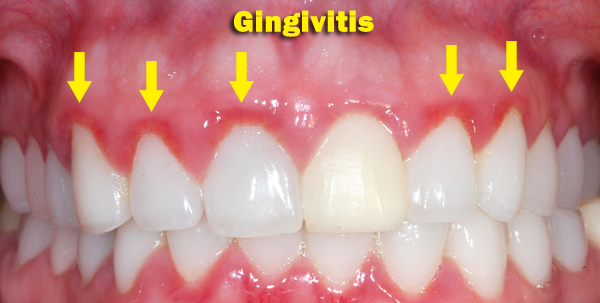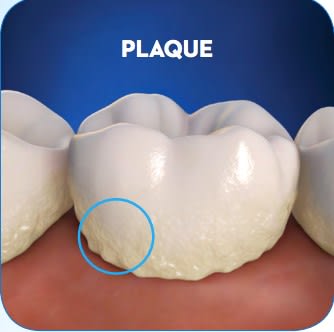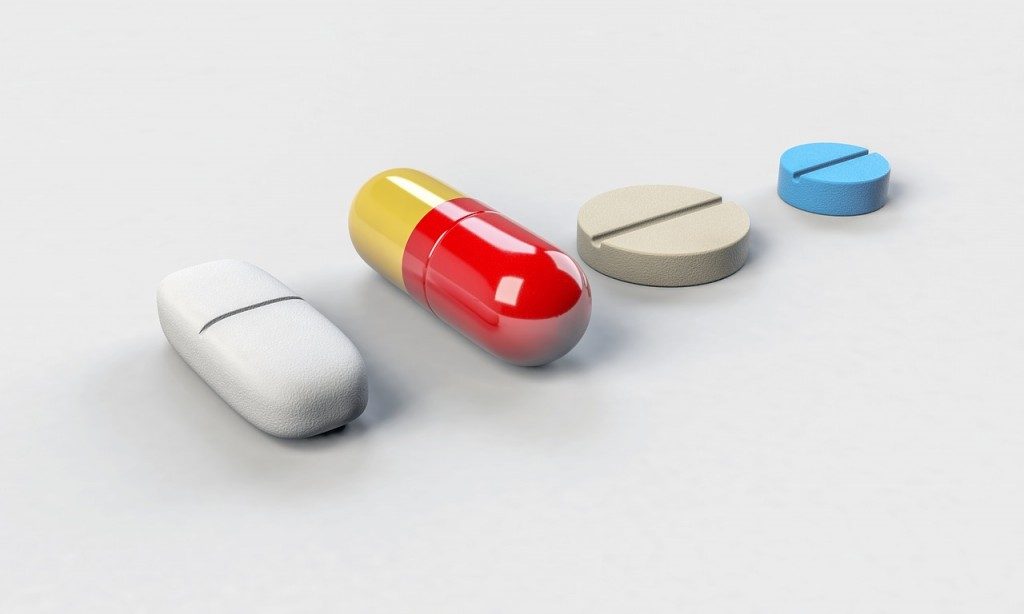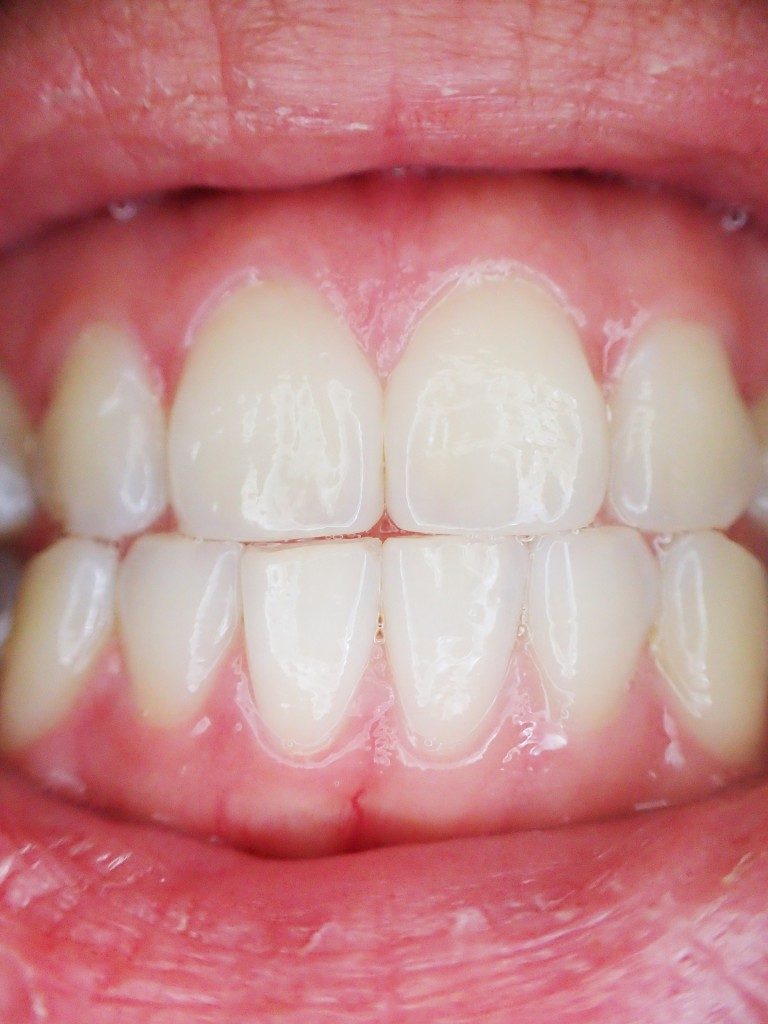Gingivitis is a form of gum disease in the form of swelling. Are you looking for tips on how to get rid of gingivitis, we will give you all the information required to cure this disease. This inflammation can be mild to severe depends on how long it has been left untreated and let your dentist decide that for you. It is the most common tissue disease surrounding your teeth and a large percentage of the population is suffering from this periodontal disease.

How to get rid of gingivitis: Causes, symptoms, and warnings!
Before we proceed and talk about the solution to get rid of gingivitis, let’s first talk about the causes of gingivitis and how can one know the symptoms and warnings at the early stage.
Experts say that there is not just one reason but there are many. Let’s talk in detail about them.
- Plaque: There is a space between your gum and tooth surface called sulcus. When you eat food, the fine particles deposits in the sulcus and causes the accumulation of bacteria and that further results in inflammation. It is called a plague. These bacteria thrive on food like sugar, starch. The longer that bacteria stays there, the more severe this disease can get and it can go deeper and the gums start to bleed and swell up as well.

- Fungal infections: If you are suffering from oral thrush fungal infections inside your mouth then it can be the reason of gingivitis as well. If you eating a diet that contains sugar then you can suffer from oral thrush. If you don’t floss your teeth and take care of your dental hygiene then this can invite a major problem. Sometimes this infection spreads to the gums and back of the throat causing a huge problem and the chances of gum infection increases.
- Smoking: If you smoke every day then you are inviting a lot of oral problems. It leads to staining of teeth, bad breath, and development of brown spots. You are prone to oral infections, tooth decay and the worse that comes your way is cancer. Just do a bit research on how many people die due to mouth cancer. If you are a seasonal smoker and can’t give up on smoking then you must visit your dentist 1-3 months to avoid the deposits and go for a routine check-up.
- Diabetes: Diabetic people are more prone to sugar. It affects the body’s ability to process sugar. Due to an increase in the blood sugar levels. Your body is producing more sugar and that can result in the gum diseases. It can affect the tissues holding your teeth. People with diabetes face a very hard time dealing with their disease because of the overgrowth of bacteria in their mouth and their incapability to fight with bacterial infections.
- Medications: Many over the counter and prescription medicines can lead to gum diseases. If you are on medications for a long time, you will be prone to dry mouth that further increases the risk of tooth decay. There are some medications like beta-blockers (BP), antidepressants etc that reduce the formation of saliva and thus causing dry mouth.
- Poor immune system: If you have a weak immune system, you will be more prone to gum diseases. Unhealthy lifestyle, getting sick frequently, taking medications more often can disturb your immune system and studies have shown that poor immune system can lead to gum diseases.
- Age: You must have noticed that old age people visit the dental clinic more often. They deal with many health problems at this age and it can become a barrier in maintaining proper dental hygiene. Many prescription medicines lead to dry mouth, the formation of less saliva in the mouth and this can damage the gums.
- Hormonal changes: When the level of estrogen increases in your body, it increases the blood flow to the gums and this can lead to swelling and inflammation. Some women experience heavy bleeding during their periods and this can lead to swollen gums as well.
- Diet: Your diet is everything when it comes to maintaining dental hygiene. If you don’t take proper nutrients in your diet then you will lack the immunity to fight the infection. If you don’t have an infection and you are not taking the proper diet and consume more sugar then you are inviting a lot of trouble because the bacteria grow faster and due to lack of nutrition, tissues will not be able to fight against the infections.
- Drug Abuse: If you are high on drugs then you will face tooth decay, tooth damage and whatnot. We have seen many cases till now and most of them are severe and come from people with this reason. Substance leads to dry mouth and production of less saliva and the chances of gum diseases are 90%.
- Ill-fitting and dental restorations: Studies have shown that there is a definite relation between dental restorations and gum health. Tooth restorations like fillings, crowns, implants can cause the weakening of the gums. Crooked teeth also affect the gums because of the overlapping of the teeth, it leads to more bacteria and hence the gum diseases.
- Genetic: In some cases, it has seen to be genetic as well. Though it’s rare, it is also a possible case.
These were the major causes of Gingivitis. There might be more for sure.
Now let’s talk about the symptoms of Gingivitis:
- Gums inflammation: Gums are made of thick tissues and are full of blood vessels. When the gums meet the tooth, swelling begins. You may feel sensitivity and pain. These are dusky red in color whereas healthy gums are pink in color.
- Gums bleeding: When you feel pain and bleeding while brushing your teeth. If it is just one drop then it is normal bleeding which can happen when you put pressure while brushing or hurt your gums mistakenly but if the blood is more than saliva when you spit then it is a matter of concern.
- Bad breath: If you smell a persistent bad breath then you must consult your dentist one. Bad breath or bad taste is usually a sign of bacterial overgrowth caused by the gum infection and the plague deposited by the bacteria.
- The problem in chewing: When you feel difficult to chew food and feel the pain in the gums then there should be no more waiting and you must see your dentist soon.
- Tooth sensitivity: When you start feeling pain in your teeth while brushing or flossing then it can be a sign of gum damage. Infection in gums can lead to pain and sensitivity in teeth.
These were the symptoms of Gingivitis that are most noticeable. Let’s talk about:
How to get rid of Gingivitis: Expert opinion!
There are most cases of gingivitis that can be taken care of at the right time with the right kind of treatment like taking good care of dental hygiene, flossing your teeth and going for regular teeth cleaning checkups. When the problem becomes severe in this case then a preferred method of surgery is the best way to treat the infection. If the infections go deeper then a surgery is a must to avoid further trouble. The longer you wait, the riskier it gets.
- Visit your dentist: As soon as you notice any symptom of gingivitis, visit your dentist and get the plague (bacteria) removed because sometimes it’s not possible to remove the plague that’s deep-rooted with the help of regular brushing. Your dentist can do the best job of removing it before it gets out of control and the problem can be reversed in the early stages.
- Antibiotics: Dentist would give antibiotics to cure the gingivitis. Plaque produces bacteria and the antibiotics help to kill that bacteria. It helps to heal your gums and treat the infection. When the gum infection is not so severe then you can take the antibiotics. It helps to kill the plague and helps to heal the gums and treat the pain as well. Sometimes it’s given after the surgery as well to help in the healing aspect.

- Root scaling and planning: Your dentist would do the deep cleaning, it goes deep under the gum line. With the help of special instruments, the dentist will clean the area under the gum line which is otherwise not possible with regular cleaning.

- Antibiotic microspheres: Tiny particles ( gel) is inserted inside the gum that reduces the size of the pocket and helps to get rid of the bacteria. The antibiotic gel is spread on the gum pockets after the deep cleaning to keep the infection in control.
- Enzyme suppressant: After doing the deep cleaning, your dentist would give you a tablet to block certain enzymes to avoid the breakage of gum tissue. Gums are damaged when the tissue gets damaged due to severe infection.
- Gum graft surgery: When your gums start receding then a surgery is performed by your dentist wherein the missing gum area is covered with the tissue. It helps to strengthen the gums.
- Gingival flap surgery: In order to reach the root of the tooth, surgery is performed by the dentist to treat the gum disease. When all other non-surgical methods fail then this method is opted to eliminate the infection.
- Gengigel gel: Hyaluronic acid helps to heal the wounds and helps in the production of new tissue. It is a very easy method and you can apply this gel at night.

This was all about how to get rid of Gingivitis.
There are many home remedies as well but you never know how severe is the infection so the best way to know is to visit your dentist on time. Most cases are treated with the help of antibiotics, deep cleaning and by following proper dental care hygiene. If the pain and infection turn severe then you must see your dentist there and then.
I can’t stress enough on the importance of oral hygiene and how it can impact your overall health. With the increase in poor lifestyle, one must be extra cautious and should visit your dentist at least once in 3 months for a proper dental check-up.

